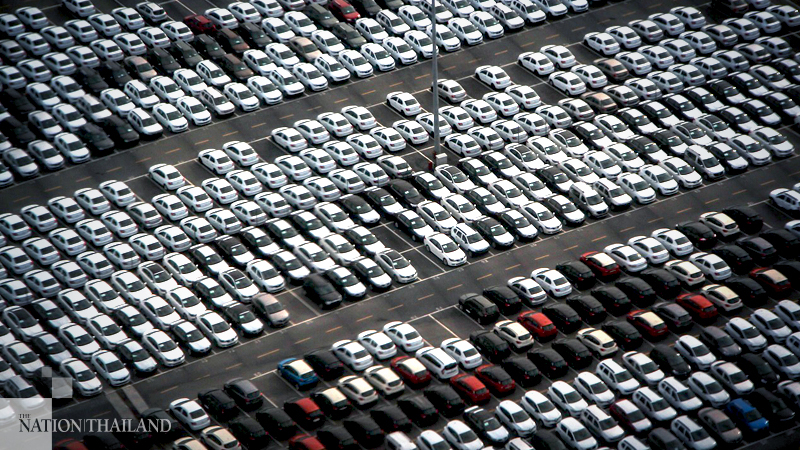California to stop sales of gas-powered cars by 2035

California, the world's fifth-largest economy and the state that created U.S. car culture, will stop selling gasoline-powered automobiles within 15 years, Gov. Gavin Newsom, a Democrat, announced Wednesday.
Facing record-breaking wildfire season and heat waves, made worse by climate change, California is moving to eliminate greenhouse gas emissions from automobiles, Newsom said.
"For too many decades, we have allowed cars to pollute the air that our children and families breathe," Newsom said in a statement Wednesday. "You deserve to have a car that doesn't give your kids asthma. Our cars shouldn't make wildfires worse - and create more days filled with smoky air."
The state's clean air regulator, the California Air Resources Board, will develop regulations that ensure every new passenger car sold in the state is electric or is otherwise zero-emissions by 2035. Automakers would have until 2045 to make sure all medium- and heavy-duty trucks and other vehicles were zero-emissions, as well.
The order does not prevent Californians from owning or selling used cars with internal combustion engines, or buying them outside the state.
Because of its market muscle, California's move could have ripple effects across the country and propel carmakers to ramp up production of electric vehicles. The state's emissions standards are followed by 13 other states as well as the District of Columbia, and auto manufacturers build cars to meet its more stringent specifications.
"We've seen this show before where California does something and others jump on board," said Karl Brauer, a veteran auto industry analyst now serving as executive analyst at the website iSeeCars. The auto industry is already embarking on a rapid shift toward connected cars, autonomous vehicles and electrification, he noted.
Newsom extolled the potential environmental and economic benefits the shift away from gas cars could bring his state during a news conference Wednesday.
"This is the next big global industry and California wants to dominate it," he said. "Today California is making a big bold move in that direction."
He painted a contrast between manufacturers embracing electrification and those attempting to resist the head winds. California is home to the country's largest electric vehicle manufacturer, Tesla Motors, which is based in Fremont. Tesla announced a plan this week to vertically integrate its battery manufacturing, attempting to unite all the elements of battery production under a single umbrella to usher in a push to build 20 million vehicles per year, up from its current production, which is less than 1 million.
Newsom highlighted the example of another storied American car company, Ford Motor, which has introduced electric vehicles into its fleet.
"They're not willing to suffer the fate of a future of dirtier air, dirtier water, and more climate disruption," he said.
Still, Newsom said he expected some resistance from other automakers ."There are some automobile manufacturers that don't (get it) and they're pushing back against California's leadership as they have in the past," he said. "I'm not naive that everybody is going to join hands on this."
Brauer, the analyst, said he was greeting Newsom's move with some skepticism. "Whenever you're putting out a prediction like that I always feel like there's kind of an easy to win to look very environmentally progressive without any accountability. Because who is going to be in government in 2035 compared to who is there now?" he said.
He noted that California in the past has set targets for electric or zero emissions vehicles automakers had to sell, figures that were "constantly updated or revised or delayed" as the companies struggled to comply.
Still, a push to meet California's deadline would represent a fundamental strategic shift for the auto industry, which is still heavily reliant on gas-guzzling pickup trucks and SUVs to meet its annual sales goals. Electric vehicles still make up only two percent of new car sales, Brauer said.
The move also comes as Newsom is under increased pressure from activists to do more to halt oil and gas drilling in the state.
Fueled by climate-warming pollution from gasoline-powered cars and other sources, fires burning more than 3.6 million acres have destroyed nearly 7,200 structures and killed 26 in what Newsom earlier in the month deemed to be a climate "emergency."
Newsom also called for an end hydraulic fracturing, or fracking, for natural gas within four years, but left it to the state legislature to enact a ban. Fracking has earned the ire of environmentalists for its potential to contaminate drinking water as well as its release of greenhouse gases that are driving global warming.
Under Newsom's watch, the state approved drilling permits for more than 1,400 new oil and gas wells in the first half of 2020, according to the Center for Biological Diversity. Kassie Siegel, director of the green group's climate law institute, praised the phaseout of gas-powered cars as "a very big step" but said Newsom is not going far enough to curtail oil production.
"Newsom can't claim climate leadership while handing out permits to oil companies to drill and frack," she said. "He has the power to protect Californians from oil industry pollution, and he needs to use it, not pass the buck."
